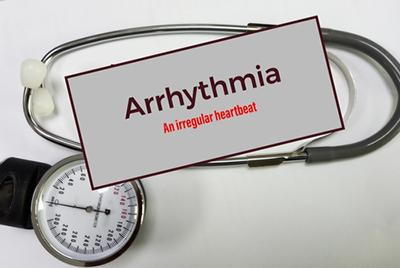- Texas Medical Center, 6560 Fannin St. #1680, Houston, TX 77030
- Heights Office, 427 W 20th St Houston, TX 77008
What Should You Do About an Irregular Heartbeat?

- posted: Jan. 05, 2024
An irregular heartbeat, medically deemed an arrhythmia, aptly means your heart isn't beating how it should. According to research, between one and five percent of the population have arrhythmias, which means those with the condition may experience fluttering in their heart or the feeling of their organ skipping a beat. Your heart may feel like it is beating too fast or too slow, and depending on the severity, an arrhythmic episode can be harmless or an emergency. At Mobitz Heart and Rhythm Center, Dr. Alireza Nazeri encourages a visit to discover why this is happening and ways to treat it.
A typical heart rate for adults at rest is 60-100 beats per minute. For athletes, heart rates can be as low as the 40s and as high as 220 beats per minute, depending on how fast your heart keeps up and your age. The tricky thing about arrhythmias is that they're silent and don't display symptoms. However, you should visit Dr. Nazeri at the first signs of sweating, blurry vision, chest pain or tightness, chronic fatigue, shortness of breath, or dizziness to rule out an irregular heartbeat in Houston, TX.
What Should You Do About an Irregular Heartbeat?
An arrhythmia can happen even if a person is healthy. Some causes include anxiety, high blood pressure, hormone changes, thyroid function, and excessive stress. Palpitations can also result from diabetes, heart signal complications, too much potassium in your blood, or heart disease. Therefore, it's critical to consult Dr. Nazeri to discuss prevention, risks, and management. You should also speak with a cardiologist if you notice persistent or returning symptoms, have rapid weight gain, and have a fluttering pulse.
Pursue medical attention if you notice an unexplained irregular heartbeat in Houston, TX, (particularly) associated with shortness of breath. Dr. Nazeri may offer advice if you have a family history of heart problems or are at risk of heart disease. If the episode is brief and resolves quickly, we encourage visiting our office. But if the arrhythmia is recurring, a diagnosis is known, and the rhythm resolves itself, it's less urgent.
Visit Our Cardiologist For Optimal Heart Health
Dr. Nazeri diagnoses heart rhythm disorders through electrocardiography (EKG), which records the heart's electrical activity through repeated cardiac cycles. It's crucial to note that one size doesn't fit all regarding treatment for heart abnormalities, but the goal is to restore the heart's rhythm to normal. At Mobitz Heart and Rhythm Center, we can help you minimize risk factors for heart disease and design a treatment plan best suited to your needs.
Please visit our website to learn more about the conditions we treat and the services provided. If you have questions or concerns regarding irregular heartbeat in Houston, TX, or want to schedule an appointment with Dr. Alireza Nazeri at Mobitz Heart and Rhythm Center, call (713) 909-3166.
Schedule your AFib Screening and Early Detection Consultations
Mobitz AFIb Clinic
P. 713-909-3166
Silent AFib = AFib Without Symptoms
Are You At Risk For AFib?
-
Read My ECG
Worried about your Apple Watch ECG Results? Get an expert virtual evaluation from home!
-
AFib Catheter Ablation
Personalized Assessment and Treatment at Dr. Nazeri's Clinic. Explore our AFib Clinic today.
